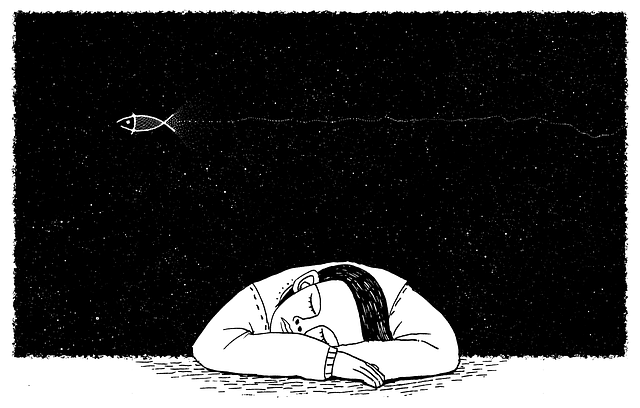Unraveling the Mystery: Does Atorvastatin Affect Sleep Quality?

Struggling with sleep disturbances and wondering, “does atorvastatin affect sleep?” The impact of this widely used cholesterol-lowering medication on sleep is a common concern. In this article, we’ll cut through the confusion and provide a clear overview of what research says about atorvastatin and sleep. From exploring the potential relationship between the medication and sleep quality to discussing management strategies for any sleep-related side effects, get ready for a comprehensive analysis that is both understandable and relevant.
Key Takeaways
Atorvastatin, while beneficial for cardiovascular health, has a complex and inconclusive relationship with sleep quality; it might cause central nervous system disturbances due to its lipophilic nature, potentially leading to sleep disturbances.
Research findings are mixed regarding atorvastatin’s impact on sleep, with some patients experiencing increased wake time and frequent awakenings, and others reporting no significant disturbance; individual experiences vary widely.
Management of sleep disturbances in atorvastatin users can include consultation with healthcare providers, possible medication adjustments, practicing good sleep hygiene, and being mindful of interactions with sleep aids and substances like alcohol.
Atorvastatin and Sleep: Understanding the Connection

Experiencing a night filled with restless sleep can highlight the importance of getting adequate rest. Now consider enduring such sleep disturbances on a regular basis—an unwelcome scenario indeed. This is what some individuals on statin drugs, like atorvastatin, may face. While these medications are essential for managing atherosclerotic cardiovascular risk, they’ve been linked to potential sleep disorders as well. It prompts us to ask whether there’s a meaningful link between taking statins and experiencing changes in sleep patterns.
To gain clarity on this issue, it’s crucial that we explore the impact of statins like atorvastatin not just on heart health but also their potential effects on sleeping habits. We’re committed to shedding light comprehensively on how patients taking atorvastatin might see their sleep altered by its use—understanding which could translate into vital improvements in life quality for those affected.
Statin drugs and their role in cardiovascular health
Statin medications, recognized as inhibitors of hmg coa reductase, have been celebrated for their pivotal role in combating cardiovascular ailments like acute coronary syndrome. They are routinely prescribed not only to avert the initial manifestation of heart disease, but also as a secondary prevention strategy, effectively diminishing the likelihood of Cardiac incidents among those deemed at elevated risk.
By impeding the function of the enzyme known as hmg coa reductase, statins exert their therapeutic effects—a fundamental concept within clinical pharmacology. This action curtails concentrations of low-density lipoprotein (LDL) cholesterol—often referred to derogatively as ‘bad’ cholesterol—which plays an instrumental part in arterial plaque development and subsequent cardiac complications. Agents such as atorvastatin operate by facilitating the removal of LDL cholesterol from plaques and consolidating these formations within artery linings. As a result, they not only achieve reduced serum cholesterol levels, but concurrently fortify arterial plaque and mitigate potential cardiovascular episodes—thereby attenuating overall atherosclerotic cardiovascular risk.
How atorvastatin may affect sleep
Understanding the impact of atorvastatin on sleep quality is a significant, yet complex issue. Despite our grasp of how statins like atorvastatin benefit cardiovascular health, the effects they may have on sleep are not entirely clear and can be subject to multiple variables.
Atorvastatin’s lipophilic characteristics allow it to dissolve in fatty substances and could possibly result in disturbances within the central nervous system that influence sleep differently compared to other non-lipophilic statins. Still, we lack concrete knowledge regarding the molecular mechanisms or processes related to brain barrier transport, which would provide clarity about how exactly atorvastatin influences sleep patterns.
Research Findings on Atorvastatin and Sleep

Investigations into the effect of atorvastatin on sleep present a spectrum of conclusions, much like the varied shades seen in an evening sky. There is evidence that points to considerable sleep disturbances among patients taking atorvastatin. Conversely, some studies report that it does not induce more disturbances than a placebo when it comes to impacting sleep.
To clarify this puzzle, attention should be given to specific elements of slumber impacted by atorvastatin — such as duration and quality of sleep, time spent awake after initially falling asleep, and frequency of waking up during the night — along with examining factors that might contribute to these changes in sleeping patterns.
Sleep duration and efficiency

The total time one sleeps, known as sleep duration, and the proportion of that time actually spent asleep while in bed, referred to as sleep efficiency, are essential elements for restorative slumber. The question arises whether cholesterol-lowering medications such as atorvastatin have any impact on these vital aspects of sleep.
Interestingly enough, it appears that the answer may be ‘No’. Research comprising a meta-analysis from several randomized controlled trials has shown that statins do not negatively influence either sleep duration or efficiency. Specifically regarding atorvastatin, there seems to be no detrimental association with these important measures of good rest. Nevertheless, it’s worth noting that although the overall effects on sleep parameters could be inconsequential on average across populations studied. Individual responses can vary significantly.
Wake time and number of awakenings
Though sleep duration and efficiency may remain relatively stable, the concern arises regarding how often one wakes up in the course of a night. Regular interruptions during nighttime can adversely affect the quality of sleep by disrupting normal sleep cycles.
Research indicates that those undergoing atorvastatin treatment tend to record elevated scores on scales measuring symptoms related to nocturnal rest, indicating greater difficulties with nighttime sleep. These elevated scores denote a potential increase in wakefulness and more frequent disruptions throughout the night due to atorvastatin. It’s important to recognize that these observations might not be consistent across all individuals since responses can vary greatly depending on personal health factors and conditions.
Factors influencing sleep changes
Grasping the potential consequences of atorvastatin on sleep is a complex task due to multiple elements that may alter these effects. Previously, we explored one such element – the lipophilic characteristic of atorvastatin.
Although lipophilic statins, including atorvastatin, could potentially influence sleep patterns, typically their adverse effects are not considered severe from a clinical standpoint and can be lessened by adopting proper sleep hygiene practices. Some reports of insomnia and sleep disturbance in those taking atorvastatin might be attributed to the nocebo effect—where negative expectations spurred by cautionary advice or media coverage lead to perceived symptoms.
Managing Sleep Disturbances While Taking Atorvastatin

Managing sleep disturbances that may arise from atorvastatin usage is crucial, as the objective of statin therapy should be to enhance well-being rather than substituting one health issue with another.
To effectively address these possible disruptions in sleep patterns, patients can take several steps. These include seeking guidance from a healthcare provider, making appropriate adjustments to their medication routines, and adopting habits conducive to good sleep hygiene. By taking such measures, individuals can minimize the impact on their rest while maintaining the health benefits provided by their regimen of taking statins.
Consultation with healthcare provider
If you encounter issues with muscle pain or disturbances in your sleep during the use of atorvastatin, it’s critical to communicate these concerns. Engage with a healthcare provider and make sure to report any adverse events through the proper channels.
Considering that sleep disturbances are not typical side effects attributed directly to atorvastatin, your healthcare provider can assess your unique situation to determine if the cause is related to external elements such as lifestyle choices or stress levels. Patients are usually encouraged to maintain their regimen of statin medication unless advised otherwise by their health professional.
Adjusting medication regimen
Should you encounter sleep disturbances that a healthcare provider believes could be associated with your atorvastatin use, what would the next steps be? Could it involve modifying the dosage of your medication?
The reality is that altering medications to address sleep disturbances can often be complex. Although clinical trials have investigated adjustments in statin treatments, their findings haven’t consistently shown substantial impacts which would justify regular changes to one’s medication routine. Consequently, more thorough research is necessary to establish precise recommendations for modifications in atorvastatin regimens aimed at enhancing sleep quality.
Implementing healthy sleep habits
Seeking medical advice for sleep disturbances is often necessary, especially when internal diseases are involved or there may be a need to modify medications. The significance of establishing good sleep practices should not be underestimated.
To enhance the quality of your sleep, it’s beneficial to foster an environment conducive to restfulness, adhere to a regular sleeping pattern, and steer clear of stimulants like caffeine as well as electronic devices before going to bed. These actions play a crucial role in addressing issues with sleep among individuals taking atorvastatin.
Atorvastatin Interactions with Sleep Aids

Should you be suffering from sleep disturbances as a result of taking atorvastatin, it might seem like a good idea to seek solace in sleep aids. Is there cause for concern regarding possible interactions?
It’s imperative to consult with a healthcare provider before initiating any new medication regimen. We are going to delve into the potential interplays between atorvastatin and various sleep aids, focusing attention on interactions with other drugs as well as dietary factors.
Drug interactions
When introducing a sleep aid while on atorvastatin, one should be cautious of possible drug interactions. Adding a new medicine could lead to unanticipated side effects or alterations in the potency of existing prescriptions.
While present evidence suggests there aren’t direct drug interactions between atorvastatin and the sleep aid doxylamine, this doesn’t eliminate the possibility with other sleep aids. It is always advisable to consult your healthcare provider before using any potential sleep aid for safe and effective care.
Food and drink interactions
It is crucial to be aware of how atorvastatin may engage with not just other drugs, but also with what we consume. In particular, items such as alcohol should be consumed cautiously since they can affect the quality of sleep.
There exists a heightened possibility for liver damage when atorvastatin is combined with alcohol. Alcohol could also exacerbate side effects related to the nervous system that are associated with sleeping medications, including symptoms like dizziness and tiredness. To promote better sleep and maintain general well-being while using atorvastatin, it might be prudent to reduce alcoholic beverage consumption.
Leveraging NiHowdy’s Prescription Discount Card for Atorvastatin
While exploring the intriguing connection between atorvastatin and sleep patterns is absorbing, it’s critical to remain grounded in the practicalities. Considering that medications such as atorvastatin represent a notable outlay, discovering ways to economize on these prescriptions while simultaneously garnering rewards would be highly beneficial.
This brings us to the NiHowdy’s Prescription Discount Card – a premier card within its industry that not only secures substantial discounts on various drugs, including atorvastatin, but also bestows Bitcoin rewards upon each purchase of a prescription. Let us delve into how one can leverage this discount card for maximum financial benefit and reward optimization.
How to use the discount card
Procuring and using the NiHowdy prescription discount card follows an uncomplicated three-step process. Initially, acquire your discount card directly from NiHowdy. Afterward, make sure that the healthcare provider who prescribed atorvastatin has forwarded your prescription to a pharmacy within their network of choice.
Once it’s time to obtain your medication, here’s what you need to do with the NiHowdy discount card.
Hand over the card when interacting with the pharmacist.
The use of this card will immediately reduce atorvastatin’s standard retail cost.
Benefit from substantial savings without any requirements for enrollment or completing additional steps.
Maximizing Bitcoin rewards
To cost reductions on your atorvastatin medication, the prescription discount card from NiHowdy comes with the added benefit of earning Bitcoin rewards. With every purchase made using this card for prescriptions, it’s possible to receive as much as 3% back in the form of Bitcoin. Accumulated over time and considering Bitcoin’s capacity for value appreciation, this feature could prove quite valuable.
To take full advantage of these potential gains in Bitcoin, consistently use your NiHowdy prescription discount card whenever you refill any prescription. Doing so ensures that you continually accumulate rewards which may provide financial relief against healthcare expenses or contribute towards significant monetary obligations in life.
Summary
As we wrap up our exploration of the connection between atorvastatin and sleep, it’s clear that this is a complex issue with no one-size-fits-all answer. While some studies suggest that atorvastatin might contribute to sleep disturbances, others indicate that it does not have a significant impact on sleep quality.
What’s important is to listen to your body and consult with your healthcare provider if you’re experiencing sleep disturbances while on atorvastatin. With a healthy lifestyle, good sleep hygiene, and the right medical guidance, it’s entirely possible to manage your cardiovascular health with atorvastatin without compromising your sleep.
Frequently Asked Questions
Does atorvastatin affect sleep quality?
There is no definitive consensus regarding the effects of atorvastatin on sleep quality. Various research indicates possible disturbances, though some reports indicate it does not have a meaningful effect.
The way in which this medication influences an individual’s sleep may differ from one person to another.
Can adjusting my atorvastatin regimen improve sleep quality?
Adjusting your atorvastatin regimen may not consistently improve sleep quality as clinical trials have not shown consistent effects from such changes.
What can I do if I’m experiencing sleep disturbances while on atorvastatin?
Should you be dealing with interruptions in your sleep while taking atorvastatin, it is advisable to engage in a conversation with your healthcare provider about the issue.
Adopting sound sleeping practices and sticking to a regular sleeping routine may aid in enhancing the quality of your sleep.
Can I use sleep aids while on atorvastatin?
Before utilizing sleep aids such as doxylamine alongside atorvastatin, it is advisable to seek guidance from your healthcare provider despite the absence of direct interactions between them.
Ensuring safety should be paramount when mixing different medications.
How can I save on my atorvastatin prescription?
By utilizing NiHowdy’s Prescription Discount Card for your atorvastatin prescription, you can benefit from immediate price reductions on the medication’s retail cost and earn Bitcoin rewards with every transaction.
Consider using this option when it’s time to renew your prescription. Give it a chance during your next refill.


